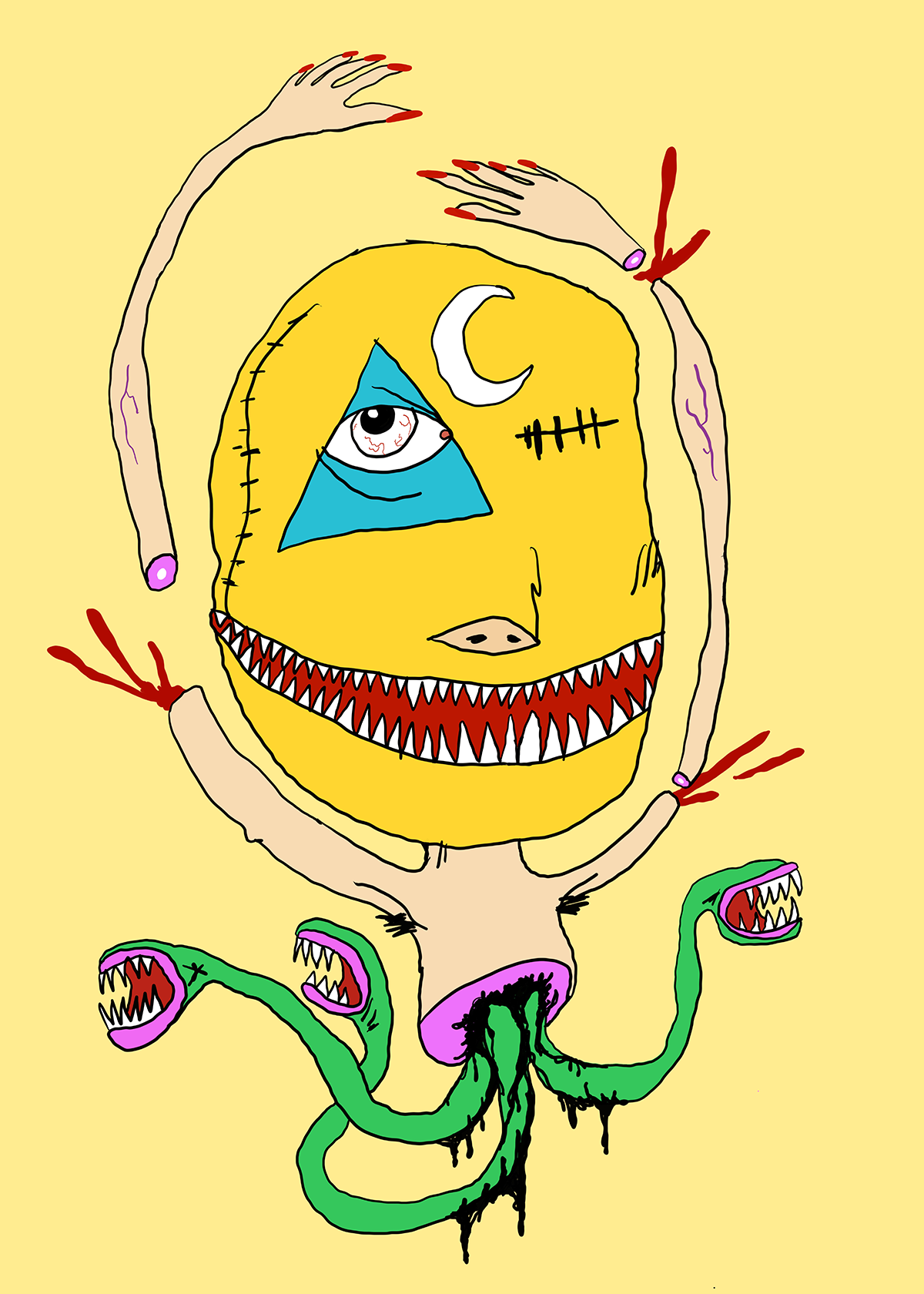


Aşı is a hybrid cyperpunk dystopian opera in which the meta-plot unfolds simultaneously on audiences' cellphones in an accompanying app/video game. This video game that the audience plays at certain times during the opera will trigger sounds and objects to which the characters and instruments on stage have to react, and vice versa.
Members of the audience can sign up in advance to be part of the cellphone choir in the opera, also conducted by the app. This cellphone choir forms a cloud of mini-speakers within the audience area itself, immersing the public with electronic sound.
Publics are already accustomed to playing with their phones and taking video during many shows these days; now only, this performance will engage their phones specifically for the opera with a dedicated app! The real and virtual are thereby fully enmeshed in the performance.
The singer's costumes and the stage sets will be built to be resonated via transducers (a.k.a. exciters) and thereby converted into amplifiers themselves; the sets and costumes then amplify processed versions of the live instruments, electronics and are also "played" by members of the cellphone choir as they negotiate the meta-plot unfolding simultaneously in the opera app.
In this way the resonating costumes and sets will create a landscape on stage that is literally throbbing with a vast array of surround sound; like this, the land on which the characters walk in the story of the opera is given a voice which seems to come from everywhere. Electronic echoes of the music therefore not only reoccur in the cloud of sound generated inside the audience itself by the cellphone choir, but are also projected through the amplified sets and costumes.
Gasmasks some singers wear are retrofitted with contact microphones in such a way as to also act acoustically like resonant chambers for controlled feedback with microphones placed inside their mouth cavities. Software controls the production of the feedback in the masks as well as various electronic processing of their voices.
Acoustic instruments will likewise be electronically processed at times. Both amplified (with and without distortion and feedback) and acoustic, unamplified playing are used in the opera side by side however, so as to achieve the greatest range of dynamics possible, from a whisper to a scream.
Aşı ("Vaccine"), based on the first novel by acclaimed Kurdish writer Ebru Ojen Sahin, with a libretto by poet Firat Demir, depicts the story of a young woman and a young man in a fictional country who are members of an oppressed minority living in a dystopian authoritarian dictatorship. They are forcibly administered vaccinations for imagined diseases and for "family planning", that means, to sterilize them. However, the last vaccination causes a grotesque and catastrophic transformation: Their genitals turn into giant monsters, which run rampant across the land, reaping rebellion, revolution, destruction and bloodshed in their wake.
Part hallucinatory Pynchon-novel, part David Cronenberg/David Lynch-style filmic adventure with a constant flow of Kurdish folkloric meta-narratives (including Dengbej recitation), the opera depicts a family's life as they are drawn into unstoppable, cataclysmic events involving racial hatred, plague, revolution and ethnic cleansing.
Racism, sexism, nationalism, sonic colonization and manipulation, and their connection to violence, disease, displacement and migration are central to the plot. The conspiratorial paranoid story dealing with vaccination is intended as a homeopathic examination of our dark age. It's a provocation equally, regardless of political stance.
The sound of the opera verges into many sonic territories without clearly belonging to any of them; including baroque / glam rock / electronica / experimental / Dengbej / punk / and sound art.